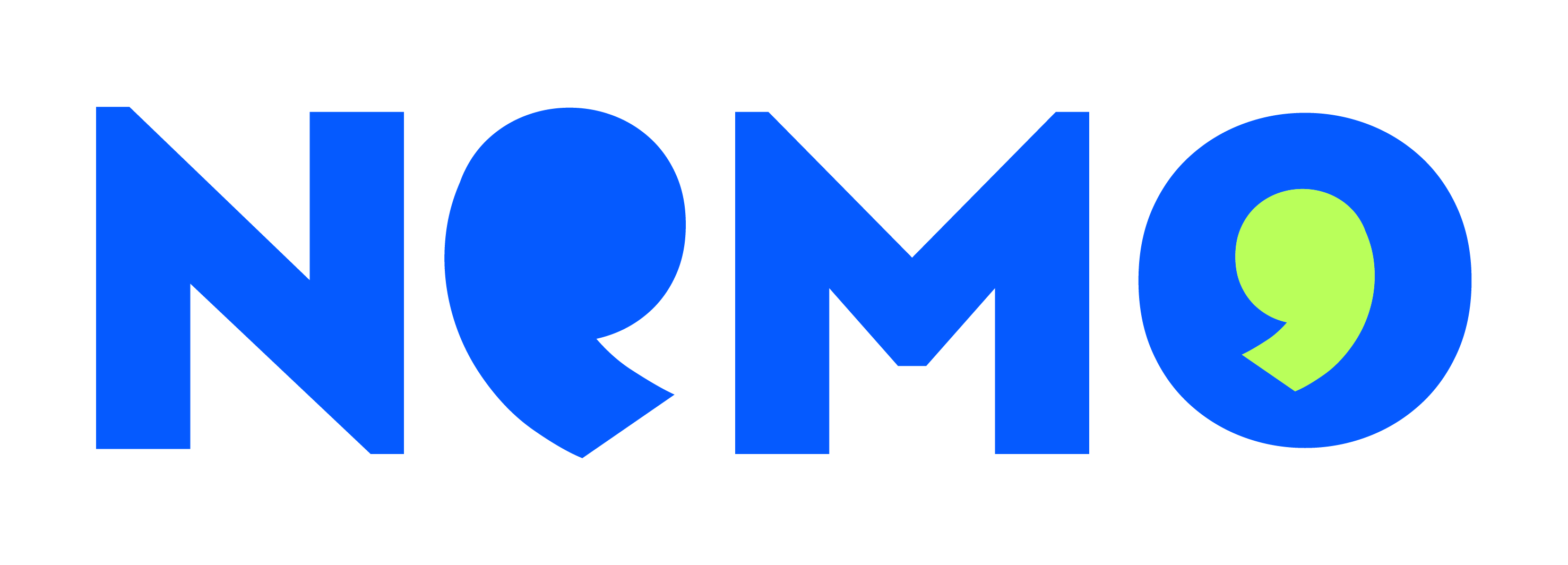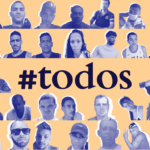Sudeshna Chanda (Zamaneh Media, Iran), Matt Kasper (Meydan TV, Azerbaijan), and Cinthia Membreño (CONFIDENCIAL, Nicaragua) explain why exiled media outlets sharing knowledge will lead to stronger, independent journalism.
Transcript
Ep 1: Introduction to the Exiled Media Podcast
Sudeshna Chanda:
Welcome to the first episode of the Exiled Media Podcast Series. This series is a collaboration between three exiled media outlets: Zamaneh Media, Meydan TV, and CONFIDENCIAL.
I am Sudeshna Chanda, Program Officer and Marketing Manager at Zamaneh Media, and today we have with us Matt Kasper, publisher at Meydan TV, and Cinthia Membreño, audience loyalty manager at CONFIDENCIAL. In this episode, we will tell how we started (the Network of Exiled Media Outlets – NEMO) and what we want to do with the series.
Hi Cinthia. Hello, Matt. Thank you for being here today.
Cinthia Membreño:
Hi Sudeshna. Thank you for having us. I’m happy to be part of this collaboration.
So, I am from Nicaragua. Nicaragua is a country in Central America that has been under the regime of Daniel Ortega and Rosario Murillo for about 15 years. Since Daniel Ortega returned to the presidency, he has been able to amass an incredible amount of power and has been able to change the Constitution so much that, for example, he managed to make the first lady become the Vice President of the country.
To this day, CONFIDENCIAL has been raided twice and forced into exile. We are currently operating from Costa Rica and some other countries. We are trying to get closer to the audiences by reporting on what’s happening in Nicaragua.
Sudeshna:
Thank you, Cinthia. And Matt?
Matt Kasper:
Hi, thanks for having me. I’m also very happy to be working on this together.
My name is Matt Kasper. I’m the publisher at Meydan TV, which is a Berlin-based media outlet for Azerbaijan. Our main audience focus is the Azerbaijani population. We were founded about 10 years ago by dissidents who wanted to create a space for non-pro-government media and debate within the country.
Azerbaijan is ruled by the Aliyevs. The current president, Ilham Aliyev has been in power since the early 2000s after taking over when his father died. Something I’ve learned through our conversations with Cinthia is that we have a commonality with Nicaragua. The Vice President of Azerbaijan is also the first lady and was also put there by her husband and President a couple of years ago.
The media situation in Azerbaijan is extremely dire. The country consistently comes in towards the bottom of rankings on media freedom year after year. This is the reason why we are working in exile with our main offices based outside of the country.
Sudeshna:
Thank you, Matt.
Before we continue I would like to introduce our audiences to Zamaneh Media and myself as well. Hello. I am Sudeshna Chanda. I work for Zamaneh Media, which is a Persian-language news outlet and an exiled media outlet based in Amsterdam.
The situation in Iran is very similar to what Cinthia mentions about Nicaragua and Matt mentions about Azerbaijan. The current regime is extremely repressive, especially towards the press. There have been several Internet shutdowns over the past few years and several imprisonments of journalists and activists. Many have left the country and are reporting from outside. That makes this collaboration all the more important because we realized through our conversations in different forums —and our conversations with other exiled media organizations— that we are not the only ones. And, as it seems, we are not going to be the only ones in the future either.
With that, I would like to ask Cinthia to tell our listeners why we are here, what the purpose of the Exiled Media Podcast series is, and how it all started.
Cinthia:
The idea of the podcast started with a conversation that Sudeshna and I had in a cafeteria on a very cold winter afternoon. We were venting about all the problems and frustrations that we have, especially being members of exiled media outlets.
So we thought, what the heck, why don’t we share everything we know with other people who may be going through the same and may be feeling alone? Perhaps feeling like they don’t have the spaces to get the resources to establish themselves in other countries, to know how to reach audiences while they are not reporting in the country, how to deal with donors, how to deal with stress at work or personal situations of the members of the team.
Our goal is to foster a culture of exchange of information, so that more experienced people can exchange their anecdotes and some suggestions on what to do. And the other way around: people who are newly entering this world of exiled media suggesting innovative ideas for dealing with regimes.
Sudeshna:
Excellent. Thank you, Cinthia.
I do have to say that I started with Zamaneh almost three years ago, but I was new to the sector. I had never worked in media and I had never worked at an exiled media outlet. And so in a way, you can say that I was an outsider when I started, and I was learning a lot on the job, but I also realized that I was spending a lot of time and resources trying to learn different aspects of being on the management end of a media outlet, especially an exiled media outlet. That’s essentially why I reached out to Cinthia when I found out about CONFIDENCIAL.
That also is why we are doing this. It’s not only for the media outlets that are in exile and that are going into exile, but it’s also for the management staff of these media outlets, people who may not have the experience or do not have access to resources —management resources, as well as journalistic resources— to better their media outlets and to further their mission.
Matt:
What you are saying, Sudeshna, about the management side of things is quite fitting. Especially for newer outlets or those who are newly forced into exile, the experience on that management side must first grow over time. The problems that they are facing —whether it’s digital security incidents or keeping people safe on the ground— they often have to solve on their own, reinvent the wheel and use a lot of resources, and also make a lot of mistakes along the way. Things that could have been solved much faster and much more easily were there more of a connection between other outlets that are similar to them.
However, because we are so geographically diverse, we don’t come across each other’s paths. This is why I reached out to Zamaneh and that’s when I met Sudeshna and was then introduced to Cinthia and CONFIDENCIAL. We had been in contact with Zamaneh in the past, fleetingly, and then most recently in the past couple of years.
We’ve seen more Belarusian and then Russian journalists and media outlets becoming exiled, and Ukrainian as well, and we realized that we had a lot of solutions to problems that they were all facing for the first time. I wanted to get in touch again with Zamaneh about how we should be fighting together these problems and sharing our ideas and our resources where they fit and where they make sense. Then through our conversations with Cinthia and with Sudeshna over time we just clicked and…
Matt and Cinthia:
Here we are!
Sudeshna:
I do have to say it’s incredible to me that today we are standing here recording an episode while Zamaneh Media’s main target audiences are in Iran, CONFIDENCIAL’s main target audiences are in Nicaragua, and Meydan TV’s main target audiences are in Azerbaijan.
Just the fact that representatives from these places have been able to come together in a way. There are linguistic differences and cultural differences among us, but we are still here together united by the fact that we are all away from our home countries. We are in exile as organizations, and we are all alone in a way but also, we can stand together with each other, we have each other. And that realization itself is quite powerful, I must say.
Cinthia:
On that same note, I think something that I have learned about migrating to another country is that you get the opportunity to create communities that share the same experiences. And not only the experience of living abroad but working in a media outlet that is in the same situation and going through the same challenges.
I think the regimes of our countries thought that by expelling us we were going to stop working and serving our audiences, but the total opposite happened. I think we are very stubborn.
Matt:
I totally agree. And I think that the fight for media freedom is an international one and it can’t just be fought in one country or the other. And so by coming together to fight back, a win in Nicaragua is also a win in Azerbaijan, a win in Azerbaijan is also a win in Iran and it goes and goes.
I think that by supporting each other we have, in some ways —despite all the cons of working from abroad— also expanded our horizons. Especially when it comes to being prepared for what could come next. That’s an extremely special connection because, despite our geographical differences and backgrounds, we are all united in a truly universal value, which is the fight for media freedom.
Sudeshna:
Absolutely. That’s why in the upcoming episodes we will bring representatives from other exiled media, as well as from around the globe, to talk about their experiences in managing different issues within their media outlets. They will share their experiences, challenges, failures, and all things about being in exile.
We hope we can add value to your life and your work through this podcast series.
Thank you.
See you soon.



